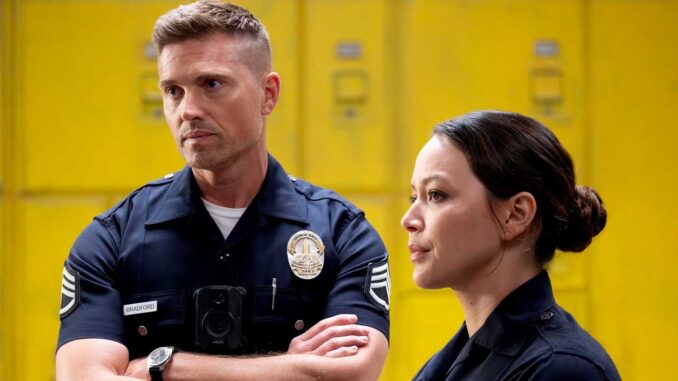
The Echo Chamber and the Shift: Understanding the Impact of Online Discourse on The Rookie Season 8
The echo of online discourse, once a distant murmur, has become a deafening roar that significantly shapes the landscape of television. Nowhere is this more evident than in the hypothetical eighth season of "The Rookie," a show initially praised for its relatively grounded portrayal of police work and its engaging ensemble cast. While the show has weathered criticisms in the past, the increased scrutiny of the last few years, coupled with the volatile nature of social media, could irrevocably alter the course of the show, potentially for better or worse. Understanding the potential impact of these online comments is crucial to predicting the trajectory of "The Rookie" Season 8.
One major area impacted by online conversation is the show's portrayal of law enforcement. In recent years, discourse surrounding police brutality, systemic racism, and the ethics of police work has reached a fever pitch. Comments criticizing "The Rookie" for glorifying police work, sanitizing the complexities of the job, and perpetuating harmful stereotypes could heavily influence the direction of Season 8. Writers may feel compelled to delve deeper into the morally ambiguous aspects of policing, showcasing the challenges of implicit bias, the pressure cooker environment officers operate in, and the potential for abuse of power. We might see storylines focusing on community policing initiatives, de-escalation training, and internal investigations, moving away from the purely heroic narrative that occasionally dominated earlier seasons.
However, this shift isn't without its potential pitfalls. Succumbing too heavily to online criticism could result in a show that feels preachy or didactic, losing the entertainment value that initially drew viewers. Overly focusing on negative aspects of policing could alienate viewers who appreciate the show's lighter moments and its portrayal of genuine camaraderie among officers. Finding a balance between acknowledging valid criticisms and maintaining the show's core identity will be a crucial challenge for the writers.
Beyond the broader themes of law enforcement, online comments can also influence character development and relationships. For example, if fans consistently voice their dislike for a particular character's behavior or romantic pairing, the writers might be tempted to alter that character's trajectory or end the relationship. We might see characters becoming more self-aware and actively addressing their flaws, or storylines emerging that directly address criticisms leveled against them. The relationship dynamics between the core cast could also evolve in response to online "ship wars" and fan theories, potentially leading to unexpected pairings or the development of previously unexplored connections.
However, relying too heavily on fan service can be detrimental. If plotlines are driven purely by pleasing the loudest voices online, the narrative can become convoluted and inauthentic, sacrificing the integrity of the characters and the overall story. Characters might act out of character to satisfy fan demands, leading to inconsistencies and undermining the show's internal logic. The challenge lies in discerning constructive criticism from fleeting trends and incorporating it organically into the narrative without sacrificing the writers' original vision.
Furthermore, the online landscape can also impact casting choices and the representation of marginalized communities. Widespread calls for greater diversity and more authentic portrayals of underrepresented groups could influence the casting of new characters and the development of existing ones. Season 8 might introduce characters from diverse backgrounds with more nuanced storylines that explore their experiences with the criminal justice system and within the police force itself.
However, this pressure to be "woke" can also lead to tokenism or superficial representation, where characters from marginalized groups are included simply to tick boxes without genuine depth or meaningful storylines. The writers must ensure that these characters are not simply used as vehicles for social commentary but are fully fleshed-out individuals with their own agency and complexities. Authentic representation requires careful research, genuine engagement with the communities being portrayed, and a commitment to telling stories that are both compelling and respectful.
In conclusion, the impact of online comments on "The Rookie" Season 8 is multifaceted and potentially transformative. While listening to the audience and addressing valid criticisms is essential for staying relevant and engaging, succumbing entirely to the whims of social media can compromise the show's integrity and authenticity. Navigating this delicate balance will be crucial for the writers as they strive to create a season that is both entertaining and thought-provoking, one that acknowledges the complexities of modern policing while remaining true to the spirit of the show that fans have come to love. The echo chamber of online discourse has the power to shape the narrative, but ultimately, it is the writers' ability to filter that noise and craft a compelling story that will determine the success of "The Rookie" Season 8.